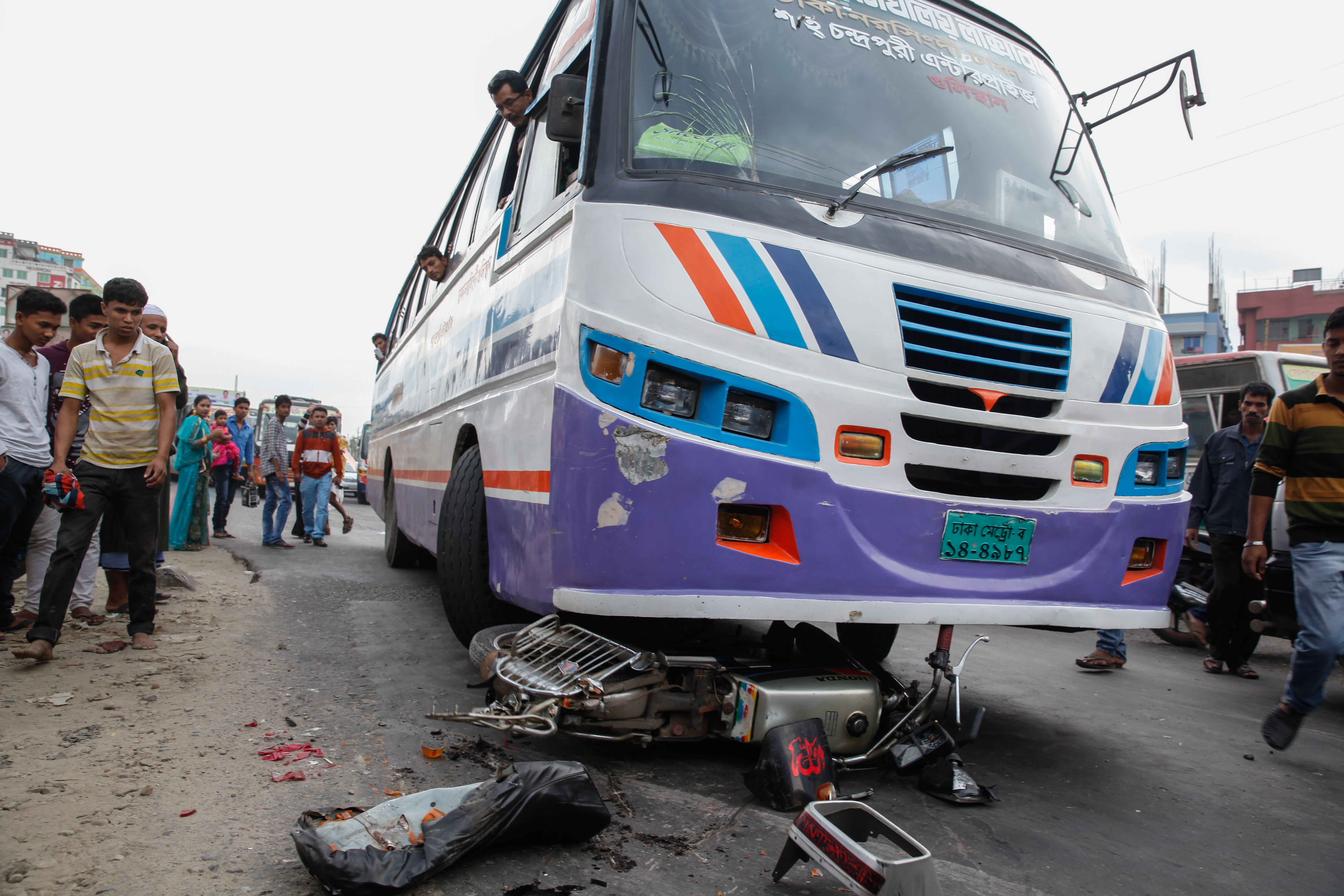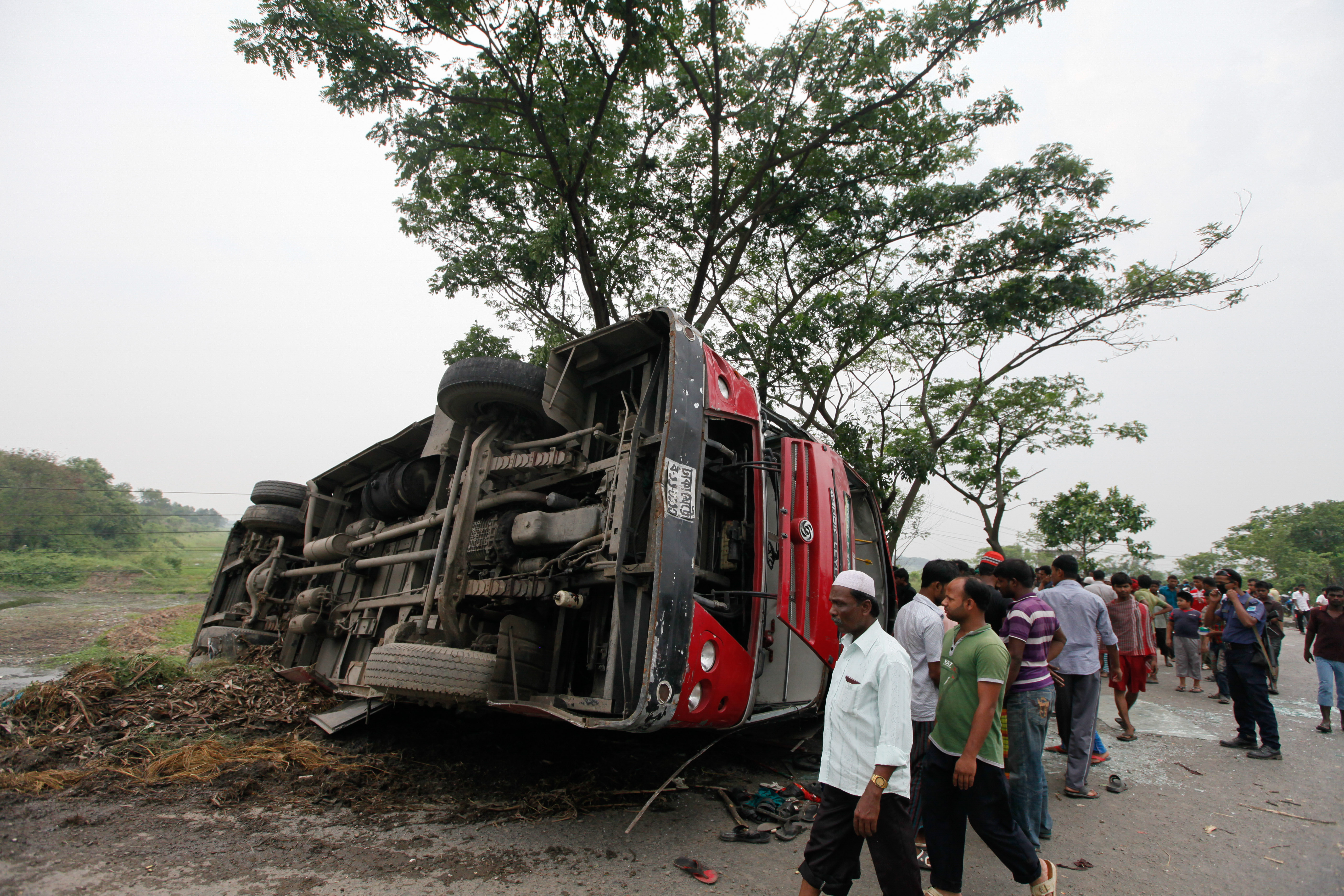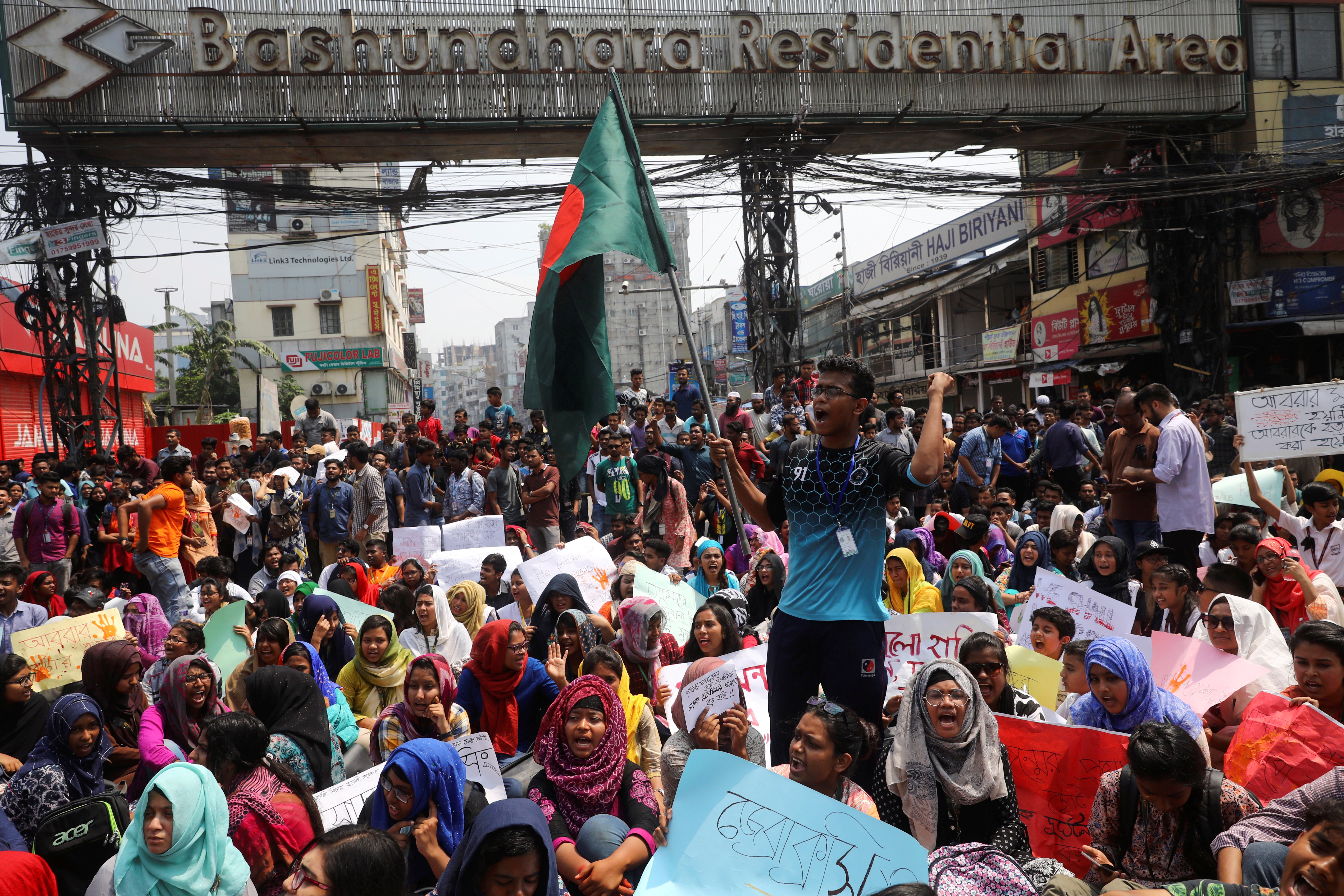
Dhaka, Bangladesh – Nearly 400 people were killed and almost twice that number injured in more than 300 road accidents in the fortnight around the Eid al-Adha holidays in Bangladesh this month.
It is the highest number of road accident deaths during the Muslim festival since the Bangladesh Passenger Welfare Association (BPWA) began compiling such data in 2016.
The South Asian nation of 165 million people has one of the highest road accident and casualty rates in the world. The incidents rise sharply during the Eid holidays when millions of people return to their homes in the countryside from capital Dhaka and other cities.
According to the BPWA, at least 398 people were killed and 774 injured in 319 road accidents between July 3 and July 17. Eid al-Adha was celebrated on July 10 in the Muslim-majority country.
The previous high of such deaths took place this year only during the Eid al-Fitr festival when 376 people were killed and nearly 1,500 injured in 283 road accidents between April 25 and May 9, says BPWA.

Since almost half the deaths during the Eid al-Fitr holidays involved motorcycles, the government banned two-wheeler vehicles on important highways for seven days from July 7 to July 13.
But BPWA data showed about 30 percent of accident deaths during Eid al-Adha holidays involved motorcycles as many people flouted the rules.
Altaf Hossain, 27, died in one such accident in Madhabdi area of Bangladesh’s central district of Narshingdi on July 11.
Hossain’s uncle Hiru Mia said the deceased was carrying sacrificial meat to deliver to a relative in another district and had no option but to use his motorbike.
“On his way, he lost his bike’s control and fell into a ditch. His head injury was fatal. The doctor couldn’t save him after he was taken to a nearby hospital,” Mia told Al Jazeera.

Fatal road accidents in Bangladesh have been on the rise despite the government saying it will reduce them by 50 percent by 2030.
According to the police, at least 5,088 people were killed in 5,472 road accidents in 2021 – 30 percent higher than the previous year.
The BPWA data paints a bleaker picture – 7,809 deaths and 9,039 injuries in 5,629 road mishaps last year.
Angry by a speeding bus killing two high school students in July 2018, tens of thousands of school and college students across Bangladesh hit the streets for a week in an unprecedented protest.
The protests forced the government to pass the Road Transport Act, which introduced a number of measures to check road accidents, including fixing a minimum age and working hours for professional drivers and an emergency helpline to report mishaps.
Despite a law in place now, there is widespread scepticism among people and experts over any real change on the ground.
When renowned filmmaker Tareq Masud and journalist Mishuk Munir died in a road accident in 2011, a nine-member government committee headed by a minister issued a number of recommendations to make the roads safer.
The panel suggested forming a Road Safety Fund from the budget allocated for road construction projects. It said the fund should be spent on road safety awareness programmes and research.
At present, more than 350 road construction projects are under way in Bangladesh, with a cumulative value of $5.1bn.
If just 1 percent of the value of these projects is kept aside for the Road Safety Fund, the money collected could be $56m. However, no such fund has been formed yet.
Plans on paper
Another major recommendation of the high-powered government committee was to better train drivers and streamline the process of issuing driving licences, given that Bangladesh’s highways are flooded with unskilled and unlicensed drivers.
According to data from the Bangladesh Road Transport Authority (BRTA), there are 3.4 million registered vehicles in the country. However, just 1.92 million driving licences were issued by the agency, indicating there are more than a million unlicensed drivers.
In 2012, the government planned to introduce driving courses in technical schools and colleges under a Vocational Education Board. That plan has not materialised yet.
Meanwhile, several BRTA drives in the last few years found that about 80 unauthorised driving schools across the country were churning out thousands of fledgling drivers.
BRTA Chairman Noor Mohammad Majumder said there are 41 BRTA-approved driving schools in Bangladesh, including 26 in Dhaka.
“Our hands are tied as these numbers [of driving schools] look small in front of hundreds of thousands of candidates,” he told Al Jazeera.
Shamsul Haque, former director of the Accident Research Institute (ARI) of Bangladesh University of Engineering and Technology, said the authorities need to be more resolute in ensuring road safety.
“Accidents in Bangladesh happen almost every day but some accidents create bigger buzzes in the media,” he said.
“Immediately after those accidents, the government announces some measure to stem public outcry, but in the long run they forget about their commitments.”







